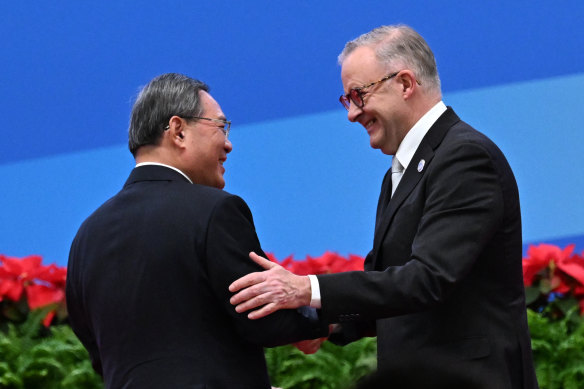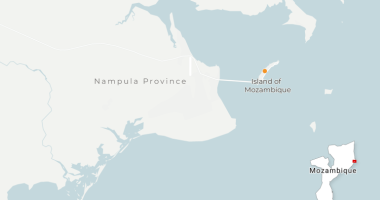Since the Albanese government came to power two years ago, its approach to China relations has been summed up by one word: stabilisation. But how stable are relations if China’s People’s Liberation Army is regularly putting the lives of Australian military personnel at risk?
Australian naval divers suffered minor injuries last November after being subjected to sonar pulses from a Chinese warship while supporting a United Nations mission in international waters. Their injuries could easily have been much worse. At the time, Anthony Albanese called China’s behaviour “dangerous, unsafe and unprofessional”, adding that Australia had lodged complaints through “all the forums that are available”.
However, as complaints go they appeared pretty muted. China’s ambassador to Australia was not called in for a rebuke, and the government minimised the fallout by withholding details of the incident until after Albanese spoke to Chinese President Xi Jinping on the sidelines of the APEC summit. Plans for Chinese Premier Li Qiang to visit Australia proceeded unabated.
Did Beijing feel at all chastened by Australia’s complaints? Absolutely not, based on the display of chutzpah Chinese officials put on at a January press conference.
Without presenting any evidence, Chinese ambassador Xiao Qian said that Australia’s close security partner Japan may have been responsible for the sonar pulses. Australia and China, Xiao said, should go beyond stabilisation by restarting joint military exercises. Senior embassy official Zhang Hua suggested that Australia was to blame for the incident, calling for it “to stop making troubles in front of China’s doorsteps and to work with the Chinese side to preserve the momentum of improving and growing China-Australia ties”.
Four months later, a Chinese fighter jet dropped flares near an Australian navy helicopter flying in the Yellow Sea. Once again, the Australian navy personnel were operating in international waters and supporting an important UN mission – this time helping to enforce sanctions on the rogue state of North Korea. Once again, it was lucky no one was seriously hurt.

Prime Minister Anthony Albanese and Chinese Premier Li Qiang in November. Albanese is preparing to host Li in a visit in June.Credit: AAP
Albanese’s response this time around? Almost identical to that after the sonar pluses. “We’ve just made it very clear to China that this is unprofessional and that it’s unacceptable,” Albanese said. Complaints had been registered to Beijing through multiple forums, he said.
Rather than a remarkable incident requiring a remarkable response, the government appears to be going through the diplomatic motions – registering complaints through what it describes as “appropriate defence channels”. Again, the Chinese ambassador has not been summoned for a dressing down. Foreign Minister Penny Wong has not said anything publicly about the incident. Albanese has not had a phone call with Xi. Apparently, a high-level discussion about the incident can wait until Li visits Australia as planned next month.
Read More: World News | Entertainment News | Celeb News
SMH







